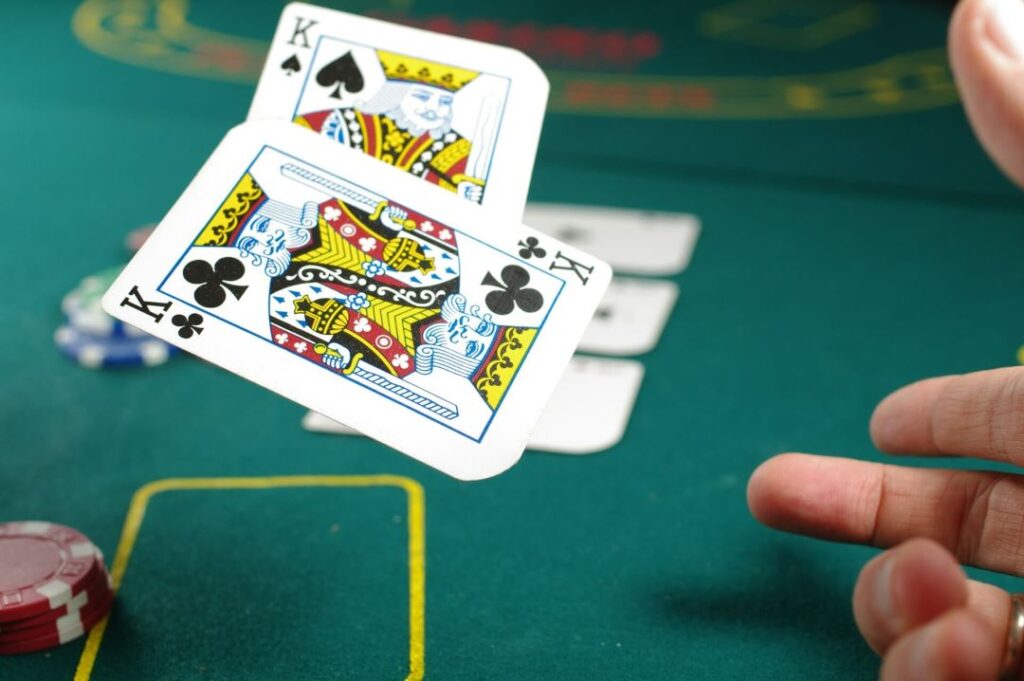
Table of Contents
Knowing when to stop playing is vital to every entertainment option, including gambling. Unfortunately, not everyone is responsible enough to keep it safe when it comes to things like gambling, And the result- is gambling addiction.
Countries are increasingly creating favorable policies for online and offline gambling. It is indeed one of the most significant income sources for many countries. No wonder they are encouraging people to engage in gambling.
However, on the other end of the spectrum lies problem gambling, gambling disorder, and many more struggles. Unhealthy gambling behavior and the resultant gambling problem are claiming hundreds of lives every year worldwide. National Council on Problem Gambling has expressed its concern over the increase in the number of problem gamblers.
Problem gamblers are people with a gambling addiction or disorder. Gambling may be the biggest priority for such people. They engage in various forms of gambling like money gambling, online gambling, sports betting, etc. They will not be able to stop gambling however they try. They need to seek help from self-help organizations like Gamblers Anonymous or take medication to recover.
The time has now come to educate people about the dark path that awaits compulsive gamblers. Among the young population, many still consider the urge to gamble as something that they can take control of. However, addiction should not be treated in such a way. People with a gambling problem need to understand how addiction works. They need to know the science of how casino gambling affects people’s brains.
The following study attempts to unravel the science behind gambling issues. It studies the people who gamble and explores how gambling can take over a person entirely.
Gambling Addiction and Problem Gambling Disorder: The Science and The Basics
Gambling addiction is a prevalent impulse-control disorder. It can affect the basic health and well-being of an entire society. Across the globe, millions of people struggle with severe gambling addiction. The increasing number of gambling venues and gambling sites is a significant reason for people getting preoccupied with gambling.
However, the ultimate reason behind the high number of gambling addicts is that it is an advantageous process. Gambling can become highly addictive once the gambler’s brain starts getting a kick out of it. With more time spent on gambling, problem gamblers get more pleasure and thrill. So, they keep gambling irresponsibly.
According to the Gambling Commission and various other gambling studies, online betting or gambling among young people is alarmingly high. Gambling participation of young adults is not adequately monitored, and thus, they gradually fall into compulsive gambling.
Understanding the basics and the science behind problem gambling in Australia and other parts of the globe is necessary. People with gambling disorder need to know what they are putting their bodies through.
Gambling Addiction: The Science Behind
The basic science behind gambling addiction is related to the Dopamine hormone release. Dopamine is a neurotransmitter that is produced only when the body feels at ease or is happy. The secretion of Dopamine gives happiness and relaxation to the human brain.
While engaging in gambling, the thrill of the games produces Dopamine in the gambler’s body. Even if the gambler loses bets, the sheer excitement and thrill of the games keep producing Dopamine. Once the gambler’s brain understands that gambling causes happiness via Dopamine, it starts feeling the need to gamble more.
Slowly and steadily, the person will get addicted to gambling. Even if they lose or win, they feel compelled to gamble with their brain. Gradually, you will lose control of your life. Resisting the impulse to gamble will be extremely difficult for a gambling addict. Despite all the warning signs like adverse health conditions, anxiety, or depression, people addicted to gambling will continue the process.
After a point, they will gamble even in the middle of economic liabilities. Once the underlying problems regarding finances come up and they have trouble controlling their lives, they will talk of suicide seriously. From job loss to personal issues, the problems may be never-ending for a gambling addict.

Signs and Symptoms of the Gambling Problem
People who may have a gambling disorder exhibit several common symptoms. Some of them are as follows.
- Symptoms of anxiety
- Difficulty in working correctly
- Irritability
- Severe mood swings
- Compulsive lying
- Unhealthy sleeping and eating patterns
- Large financial liabilities
- Gambling obsession
- Guilt, fear, and worry
- Depression
- Lending and borrowing money for gambling
Problem Gambling: Is it Possible to Stop Gambling Participation?
From helpline to peer support, the options to seek help out of gambling addiction are possible. Various national gambling organizations promote responsible gambling. They attempt to avoid gambling prevalence in young people’s lives.
Recovery from gambling is possible. With the proper support to help, you can control your loved one’s gambling addiction. The first and foremost thing to do to get help is to use reputed gambling helplines. The experts at the helpline desk will guide you through the best treatment options.
Gambling Disorder: Recovery Options and Self-Help Groups
Help is available for gambling disorders in three different categories. They are as follows.
- Self-help groups
- Therapy
- Medication
It is the intensity of the disorder that determines the treatment option. Severe addicts who experience uncontrollable withdrawal symptoms will have to take medication. Seld-help groups extend support and encouragement for recovering people with an addiction. Therapy helps with correcting the various behavioral flaws that a person with an addiction carries along.
With proper professional help, it is possible to reverse the effects gambling has on one’s brain. Understanding the science behind gambling addiction is highly crucial in the recovery journey. People need to understand the harmful effects of gambling addiction so that they refrain from engaging in any gambling activities in the future.
Final Word: Set Boundaries and Keep Gambling
Many social and individual factors lead someone to gambling addiction. But people need to have the best opportunities to walk out of the shame of gambling addiction, too. Governments and various other organizations are focusing on extending their support to help people with gambling addiction. People with an addiction are expected to make the best use of the treatment options available to them and escape from addiction as soon as possible. Responsible gambling should be the motto of every single gambler worldwide.
FAQs
Cognitive behavioral therapy, or CBT, is a popular form of treatment used to treat various addictions and similar mental disorders. This therapy helps patients regain control of their habits, thoughts, and routines.
Alcoholics Anonymous is a global initiative that aims at ending alcohol addiction once and for all. The initiative originated in the USA and later spread to many other countries. It helps in the recovery of people struggling with severe alcohol addiction. Alcoholics Anonymous has introduced a twelve-step program to control alcohol consumption effectively.
The Problem Gambling Severity Index is a globally accepted tool that helps identify the intensity of gambling behavior in a person. This tool is extremely useful in identifying gambling disorders in people. The index bases its findings on the clinically proven symptoms and signs associated with gambling addiction.
Neuropsychopharmacology is a dedicated department of science that deals with the effects of drugs on the body and mind of a person. This science discipline mainly focuses on the harmful effects of drugs on the mental and emotional health of a person. Neuropsychopharmacology analyses the behavior of a drug addict and devises assumptions and conclusions from it.










